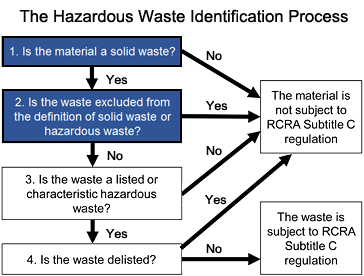Reclaim Waste for Beginners
9 Simple Techniques For Reclaim Waste
Table of ContentsExcitement About Reclaim WasteOur Reclaim Waste IdeasFacts About Reclaim Waste UncoveredIndicators on Reclaim Waste You Need To KnowThe Only Guide for Reclaim Waste
Explore the kinds, events, and forms of liquid waste. Residential sewer waste refers to the waste and items from a domestic septic tank. This kind of waste is produced by humans in homes, institutions, and other buildings. This only consists of septic systems that have a drain field. The correct management and disposal of domestic sewer waste need liquid waste to be transferred to a sewage treatment plant where the correct approaches and equipment are put on purify and dispose of waste.
Commercial waste typically consists of potential threats, such as combustible products or a combination of liquid and solid waste products, and calls for an advanced and thorough disposal process. The disposal of industrial waste typically includes the filtration of waste prior to transportation to ensure safe and appropriate disposal. Industrial waste is developed from by-products and drainage of industrial processes and production.
This sort of waste can not use the exact same sewage monitoring transportation or processes as septic or business liquids. The hazardous waste administration procedure requires the evaluation and screening of liquid waste before it goes through the disposal process (industrial wastewater treatment). Overflow waste is the liquid waste that comes from runoff and excess stormwater in highly populated locations or cities
Overflow waste can trigger contamination and flooding otherwise dealt with effectively. Find out more about sewer cleaning and waste monitoring. Ensuring proper waste administration can prevent disasters and reduce ecological injury. Both people in property setups and specialists in industrial or production industries can take advantage of recognizing the procedures and laws of liquid waste management.
Everything about Reclaim Waste
Get in touch with PROS Services today to find out about our waste management and disposal solutions and the correct ways to take care of the fluid waste you create.
(https://www.pageorama.com/?p=reclaimwaste1)Do you understand what occurs to your water when you draw the plug, flush the bathroom or drain the cleaning machine? No? Well, it's worth knowing. This supposed 'wastewater' is not only an essential resource yet, after treatment, will certainly be launched to our land, waterways or the ocean. Used water from toilets, showers, baths, kitchen sinks, washings and industrial procedures is known as wastewater.

water used to cool equipment or clean plant and devices). Stormwater, a kind of wastewater, is drainage that streams from farming and city areas such as roofings, parks, gardens, roads, paths and seamless gutters right into stormwater drains, after rain. Stormwater streams neglected directly to regional creeks or rivers, eventually reaching the ocean.
Get This Report about Reclaim Waste
In Queensland, a lot of wastewater is dealt with at sewer treatment plants. Wastewater is transported from residential or commercial websites with a system of drains and pump terminals, referred to as sewerage reticulation, to a sewage treatment plant. Local federal governments construct, keep and run most sewage treatment plants. Operators are licensed under the Environmental Protection Act 1994 to release treated wastewater at an appropriate ecological criterion right into rivers.
The Department of Natural Resources suggests regional governments about handling, operating and keeping sewerage systems and treatment plants. In unsewered locations, city governments might require owners to set up private or household sewer therapy systems to treat domestic wastewater from commodes, cooking areas, bathrooms and washings. The Department of Natural Resources authorises the usage of family systems when they are verified to be reliable.
In some brand-new communities, treatment of some stormwater to get rid of litter, sand and crushed rock has started using gross contaminant traps. Wastewater therapy takes place in four phases: Removes solid issue.
Wastewater after that streams right into large tanks where solids work out and are gotten rid of as sludge. Grease and residue are skimmed from the surface. Utilizes small living organisms called micro-organisms to damage down and eliminate staying liquified wastes and great fragments. Micro-organisms and wastes are incorporated in the sludge. Eliminates nitrogen and phosphorus nutrients that can create algal blooms in our rivers and intimidate water life.
The Only Guide for Reclaim Waste
Nutrient removal is not offered in any way sewage therapy plants due to the fact that it needs expensive specialised equipment. It is coming to be extra usual in Queensland. Clear fluid effluent created after therapy may still consist of disease-causing micro-organisms. If this effluent is launched right into rivers such as rivers or the sea, the micro-organisms will eventually die out.

A lot of wastewater flows right into the sewage system. Under the Act, local federal governments carry out approvals and permits for environmentally pertinent activities (Ages) involving wastewater releases that might have a regional influence.
The Best Strategy To Use For Reclaim Waste
Monitoring supplies accurate details about water high quality and can verify that licence conditions are being satisfied. The info acquired via surveillance provides the basis for making water top quality choices.